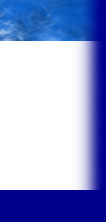The Decktet: A Useful, Interesting, Non-Tarot Divination Deck
My darling husband brought The Decktet by P.D. Magnus to my attention some time ago, and I finally thought about it when I was actually at my computer and had an internet connection to check it out.
It’s not a traditionally structured Tarot deck, but the visual interest and unique take on cards and cartomancy make it worth exploring. The deck has six suits of ten cards each, plus three Pawn cards and an Excuse card. The twist is that, while the Aces and Crowns all have a single suit, each numbered card has two suits, and the Pawns have three suits each, which makes for more interest in using them for divination (and a lot of fun in playing the games!). Thus the deck has only 36 cards.
The Excuse card has no suit and no rank. Magnus says to omit it for purposes of “fortune telling” (his term) – but you might try including it and consider it to be The Fool from a traditional Tarot, or let it simply show you how it fits into the spread.
The suits are Moons, Suns, Waves, Leaves, Wyrms, Knots, in order of hierarchy. The suits are combined in different ways on each card: the Moons-Suns, Waves-Leaves, and Wyrms-Knots combinations occur three times each, making them more common than any other combination. The Moons-Wyrms, Suns-Leaves, and Waves-Knots combinations do not occur on any of the cards. You could look at the presence or absence of a particular suit or combination of suits to add depth to the reading.
The cards are divided into Personalities, Places, and Events, rather than a major and minor arcana. Whether a card represents more quotidian or archetypal forces is determined by its position and relationship to other cards, rather than inherently designed into the card.
Magnus offers the cards in a spirit of fun and “for entertainment purposes only. Let no harm come of it.” And yet, the cards do provide good readings and can be used in place of a more traditional Tarot to gain perspective and insight into a situation.
The site gives a brief overview of the meanings of the cards. As with traditional Tarot decks, the gender and appearance of the person depicted on the card can represent a quality of being or personality, rather than necessarily representing a person of that specific gender, occupation, etc., and the meaning is interpreted by the position of the card and its relationship to other cards in the spread.
Magnus shares three spreads on his website, one with four cards and the others with 10 cards. I especially enjoyed this instruction on the four card spread, which is done by separating the cards into four stacks: “If you deal through the whole deck without completing the four stacks, then the cards will not speak on this matter — put the kettle on and make a cup of tea.” The deck also works well with typical Tarot spreads.
The Decktet also has a discussion forum for sharing ideas in the Decktet Wiki. Most people are developing games for it, but I’d love to start a discussion group on using it for divination. (Hint, hint – check it out and start posting!)
You can download it for free and print it on regular paper or cardstock, or you can order a printed copy for $10, plus $5 shipping to the US and Canada. (Shipping to other countries is available by contacting Magnus directly.) If you’re looking for a gift that’s almost guaranteed to be something your Tarot friend hasn’t seen before, this is it!
While not a traditional Tarot, the Decktet is imaginative, fun, and useful, and it’s certainly worth taking the time to explore!









Kind of different. Cool.